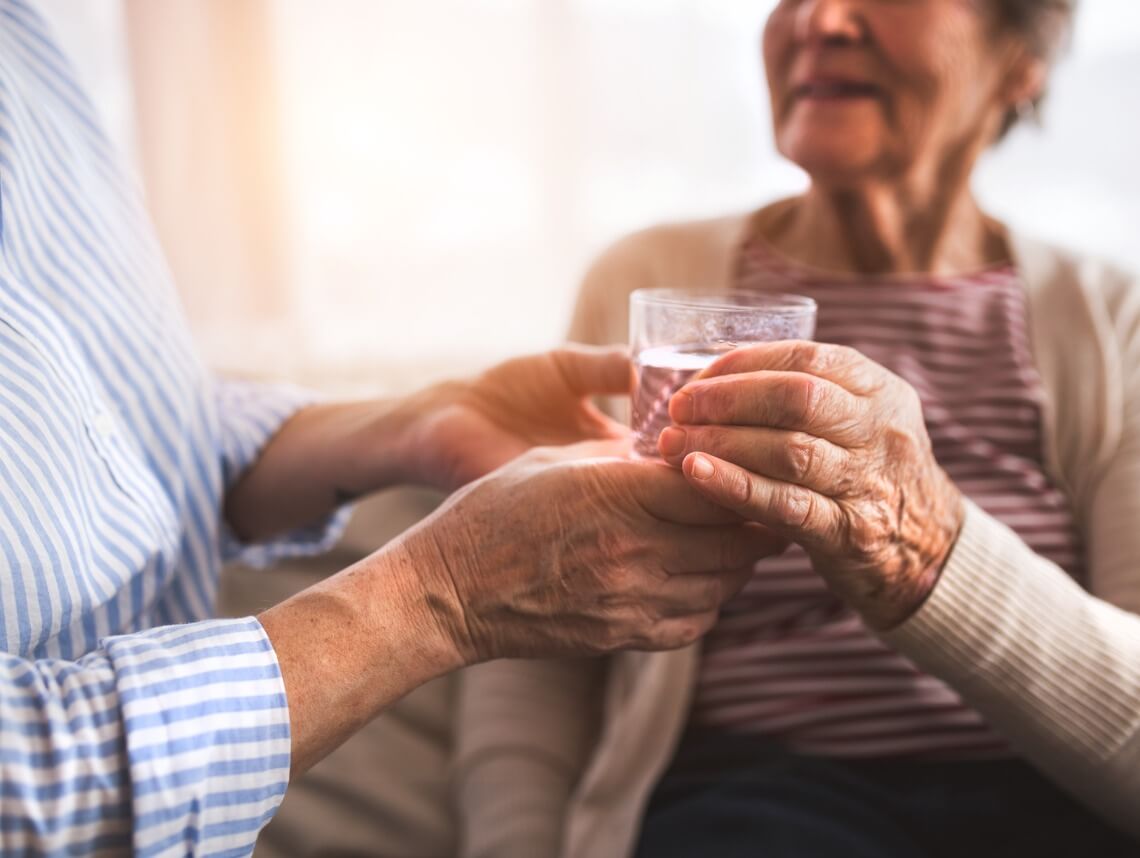Medically known as xerostomia, dry mouth can be caused by a wide variety of factors, including dehydration, certain health conditions, and many medications. A chronically dry mouth can be extremely uncomfortable and lead to many problems, such as bad breath, tooth decay, and gum loss.
6 Ways to Help With Dry Mouth
If your elderly loved one suffers from dry mouth, finding ways to help them cope with this issue, both by relieving the symptoms acutely and finding long-term solutions to the issue itself, can dramatically improve their quality of life, encourage better nutrition, and ease mental and emotional health consequences related to the problem.
Use these tips to help your aging loved ones cope with dry mouth:
1. Avoid Mouthwash With Alcohol
Using mouthwash may seem like a great way to keep your breath fresh and your mouth clean, but if the mouthwash contains alcohol, which most do as a bacteria-killing agent, it can dry out your mouth even further. As a general rule of thumb, if the mouthwash burns while using it, it likely contains high doses of alcohol. Be sure to read the ingredients carefully before choosing a new brand. Switch to a version designed for dry mouth or that is “sensitive” or alcohol free for the freshening and cleaning benefits without the burn or the drying effects.
2. Suck Sugar-Free Candy
The mouth naturally produces saliva when it tastes something pleasant. Keep this flow going by chewing on sugar-free gum or sucking on sugar-free hard candy throughout the day. The sugar-free element helps prevent further drying as well as tooth decay and keeps from adding excess calories to your day. Make sure that you monitor reactions to the candy, however. Sugar-free gum and candy generally contain xylitol, a sweetener that also has moisturizing properties, that can lead to diarrhea when consumed frequently.
3. Increase Water Consumption
Increasing the amount of water you drink throughout the day enhances moisture in all areas of the body, including the mouth tissues. Sipping water every couple of minutes also provides immediate relief to the dry feeling.
4. Quit Smoking
Cease all use of tobacco products, including smoking, snuff, and chewing tobacco, all of which are bad for your oral health and can have drying properties.
5. Eliminate Caffeine
Caffeine can also be very drying for the mouth because it dehydrates the entire body. Eliminate caffeine and replace caffeinated beverages with water to boost hydration and get extra health benefits throughout the body including consumption of fewer calories.
6. Use Mouth Moisturizers
Ask the pharmacist or your parents’ doctor about mouth moisturizing products such as sprays and rinses. These are sometimes referred to as saliva substitutes and provide immediate relief of the sensation of dry mouth. Just as with the sugar-free gum or candy, be careful if the product you choose contains xylitol as it could lead to abdominal cramping or diarrhea when used in large quantities.
Contact Care Options for Kids for Home Health Care Services
If dry mouth is an issue for your aging loved ones, get in touch with their dentist so you can make sure there is not another serious problem at play and you can get recommendations for products and habits to ease the discomfort and resolve the underlying issues.
If you or an aging loved one are considering home care services, contact the caring staff at Care Options for Kids Home Care. Call today (888) 592-5855.






